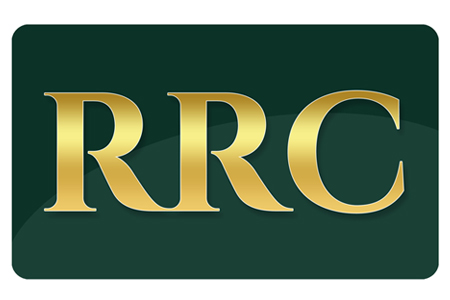The Registered Reserve Consultant (RRC) Credential
 Long-term budgets are known by a variety of names; long-term budget, capital budget, major repair and replacement budget, capital improvements budget, or reserve study. One thing they all have in common is that they all deal with long lived physical components and related activities. They may vary in that some, such as the reserve study and major repair and replacement (MRR) budget normally exclude capital improvements (meaning new items not already existing on the physical site. Other forms of long-term budgets may include capital improvements.
Long-term budgets are known by a variety of names; long-term budget, capital budget, major repair and replacement budget, capital improvements budget, or reserve study. One thing they all have in common is that they all deal with long lived physical components and related activities. They may vary in that some, such as the reserve study and major repair and replacement (MRR) budget normally exclude capital improvements (meaning new items not already existing on the physical site. Other forms of long-term budgets may include capital improvements.
A term that is often used very loosely in connection with these types of budgets is the word “capital.” In accounting terminology the term capital has a very specific meaning that is not understood outside the accounting world – capital in the context of long-term budgets generally refers to expenditures that may be “capitalized” meaning that the expenditure substantially improves or extends the life of a component beyond its original life. Rebuilding an engine in a piece of equipment would generally be considered a capital expenditure because it extends the useful life of the piece of equipment. Paint a building is generally NOT considered a capital expenditure because, even though it may be a large expenditure that does not occur on an annual basis it does not extend the life of the building beyond its original expected life. The original expected life of the building assumes periodic painting to allow the building to reach its original estimated life. While not itself a capital expenditure, painting is generally included in long-term budgets because it is a significant nonannual expenditures that simply does not fit into the operating budget which works on a one-year cycle.
Long-term budgets are based on an underlying analysis of the major repair and replacement activities within an organization. These activities may vary depending on the operating maintenance activities that occur, and activities may include both physical activities such as major repair or replacement of physical components and intangible or “service” type activities such as feasibility studies.
Long-term budgets rely on accurate cost estimating of the major repair and replacement activities included within the scope of the analysis.
Finally, long-term budgets rely on a consistent and widely accepted framework of financial calculations and reporting.
There are no licensing or statutory limitations on who may prepare long term budgets. Most individuals who perform long-term budgeting services do not have technical training in all aspects of the long-term budgeting process. Many do not even recognize that the budgeting process involves more than a single discipline, they simply describe the overall process as a “reserve study” and believe that it only involves a single skill set.
Inherent in the concept of professional training for the long-term budget process it is recognized that there are three separate disciplines that comprise the overall process:
- Knowledge of maintenance of physical facilities
- Knowledge of valuation and pricing techniques
- Knowledge of financial modeling, calculations and reporting
The Registered Reserve Consultant credential is built on the premise that an individual must possess skills, knowledge, and experience in all three of these disciplines in order to perform professional level long-term budgets. Accordingly, the RRC framework established by the Budgeting Professional Credentialing Board encompasses (1) training in all three of the disciplines, testing in all three of the disciplines, and a comprehensive test of knowledge in order to receive the RRC credential. In addition, all individuals that hold the RRC credential must perform all reserve study repots in compliance with Generally Accepted Reserve Study Principles and such engagements shall be performed in accordance with Generally Accepted Reserve Study Standards as established by the International Capital Budgeting Institute.
There are no competing credential or designation programs for long-term budgeting services that require technical training or a test of knowledge prior to earning the credential.
Required courses to qualify for RRC credential – All of these are at an overview level
Fundamentals |
|
|
Reserve study standards, calculations, and reporting |
1.5 Hours |
|
Cost estimating |
1 Hour |
Grounds |
|
|
Streets and paved and hardscape surfaces |
1.5 Hours |
|
Swimming pools and water features |
1.5 Hours |
|
Landscaping maintenance and replacement |
1 Hour |
|
Fencing |
1 Hour |
|
Recreational facilities & equipment |
1.5 Hours |
Buildings |
|
|
Building envelope – siding, windows and doors |
2.5 Hours |
|
Roofing systems |
1.5 Hours |
|
In-structure/underground utilities |
1 Hour |
|
Flooring systems and floor coverings |
1.5 Hours |
|
Lighting Systems |
1 Hour |
|
Paint and surface coatings |
1 Hour |
|
Building interiors |
1.5 Hours |
Specialty |
|
|
Highrise reserve study overview |
2 Hours |
|
Country Club / Golf course overview |
2 Hours |
|
Timeshare resorts overview |
1.5 Hours |
These courses are designed to qualify as part of the required education to earn the Registered Reserve Consultant (RRC) credential. Participants must achieve a passing score of 75% in the test at the end of this course in order to earn the 2 hour credit for this course. 24 hours of qualifying education are required to earn the RRC credential.
